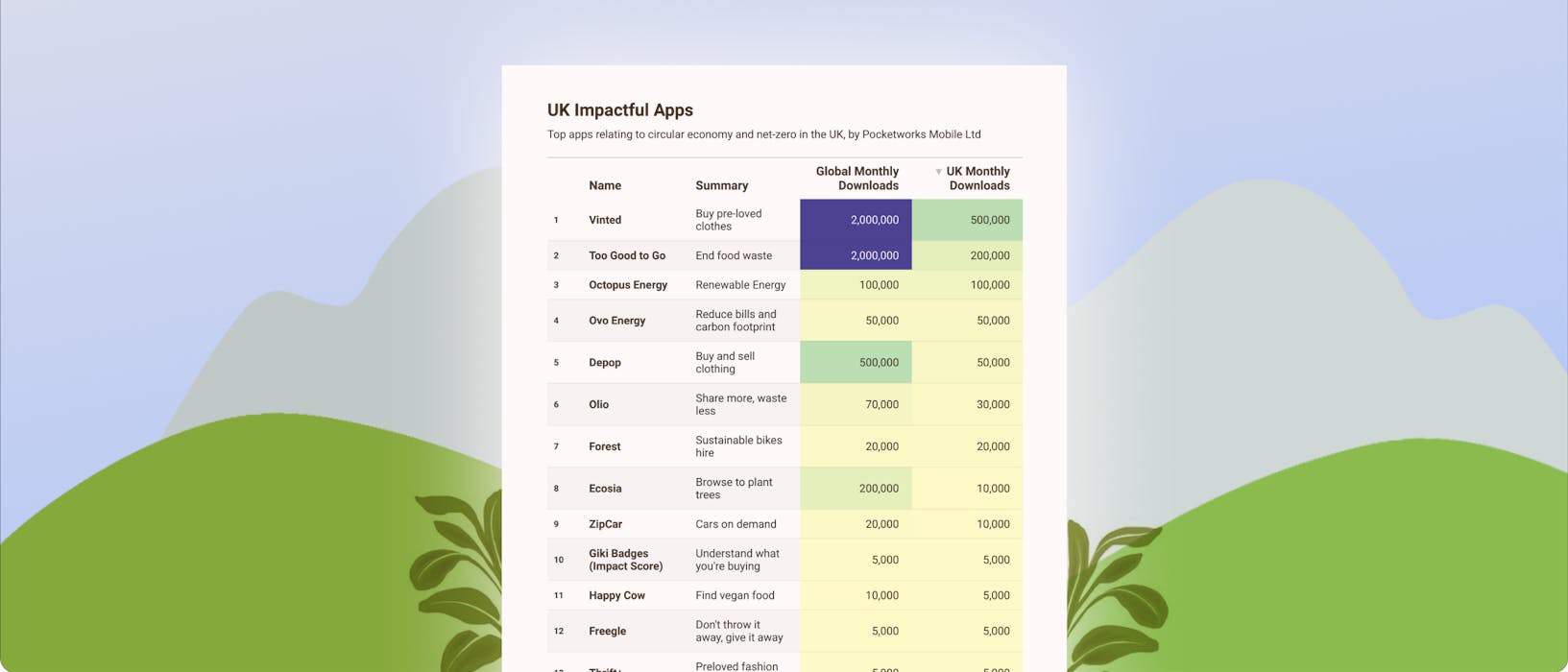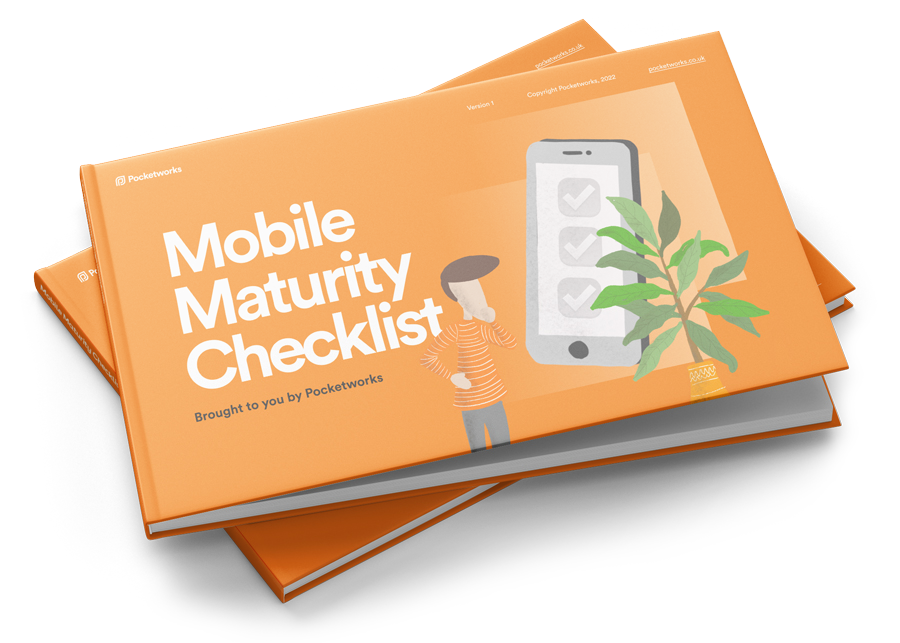Apps are well known for their ability to engage consumers and introduce new behaviours. In this article, you can find the top sustainable apps in the UK and their varied business models.
This article is written for people who work in organisations that care about sustainability and are considering developing apps to create positive change. The goal is to give you inspiration and insight to help you develop and grow your own app.
This article was inspired by the awesome Leeds GreenTech Gathering, which I started going to back in November 2023. I spoke to many friendly people, all passionate about using technology and behavioural change to reduce carbon emissions and advance towards Net Zero. It's a mammoth task, and I immediately pondered:
"How are apps helping?"
Please note that this post is a work in progress; I'll add more apps to the analysis throughout 2024. I would keenly welcome your feedback on apps I've missed or data that looks dodgy. Right, let's get into the data.
Thirty-seven impactful apps
Below is a list of the apps that I've looked at so far. It's not conclusive or comprehensive; instead, it's a peek into the world of apps that aim to help people form better habits or make better buying decisions.
What drives people to use these apps?
As you know, the most successful apps help people get a job done. It might be as simple as ordering a taxi or as complex as learning a new language. Apps that facilitate sustainability are no different. Below, I have attempted to categorise the list of apps by why people use them. In other words, I've taken a stab at the main "job to be done" to see how many downloads apps are getting based on the need they fulfil.
Here's what the labels mean:
- Give stuff away: you could argue this could also be called "get free stuff.". It includes apps that enable us to reduce waste and production volume.
- Lease stuff: a personal favourite. It's all about giving people an opportunity to borrow stuff rather than buy it.
- Develop ecohabits: Some apps are all about helping people develop better habits, such as recycling.
- Eat vegan: for people looking to eat less meat.
- Buy used clothes: This could have been called buy used, but clothes seem to be a special case, as there are so many apps in this category.
- Buy sustainable energy for home utilities such as gas and electricity.
It may also be useful to see them by app store category:
Service first, impact second?
Here's an observation, or perhaps a hypothesis. The service or utility of an app is more important than the positive impact it generates. Let me explain. As mentioned above, when you develop an app, it's typically to help someone get a job done in the moment. E.g., buying clothes. Apps that offer a great experience and solve a pressing problem for the consumer tend to win. This rule seems to equally apply to impactful apps too. So, if you're developing an app in the green tech or net-zero space, your task is to make sure you solve a real problem for your audience and do that in a nice way. With this thinking, sustainability is secondary; it's the icing on the cake. I recently read that:
By 2030, every product will be a climate product. -- Connect Earth
There is something in this view. Sustainability is becoming a must-have. We already know that consumers prefer to buy from sustainable companies, so much so that it influences their buying decisions. Is it possible that every app will be an impactful one?
One exception is when your audience is people trying to change their habits. If that's the "job to be done," then of course your app is more about impact than service. However, I suspect this is a small market, which is why habit-forming apps aren't so popular.
People love cheap and free stuff
No sh*t, Sherlock. The most successful types of apps right now are ones that get people stuff for free or at a low cost. The positive thing here is that it reduces waste and, potentially, requires less manufacturing due to a thriving used market.
Chart-topping Too Good to Go achieves 200,000 monthly UK downloads and has had over 10,000,000 UK downloads in total. Sam at GreenTech Gathering told me that this company was founded in Leeds, not far from Pocketworks HQ 🔥
Olio is another brilliant success story, with 50,000 monthly UK downloads and 3 million in total.
Wasted food is a significant problem because producing less food would drastically reduce global emissions.
Wasted food, that which is produced and not eaten, is an emissions source the size of India -- Nathaniel Bullard
It seems the clothing waste problem is a big one, too:
"Around 50 full trailers of unwanted clothing go into UK landfill sites every single day." -- Source?
I'm curious to see if there are more categories where this model would work.
Too Good to Go is also ranking at position 52 in the UK at the time of writing, which puts it just ahead of the NHS App and one behind KFC.
Freegle, reGAIN, and Thrift+ haven't quite managed to achieve the same levels of success, but they focus on a similar use case.

